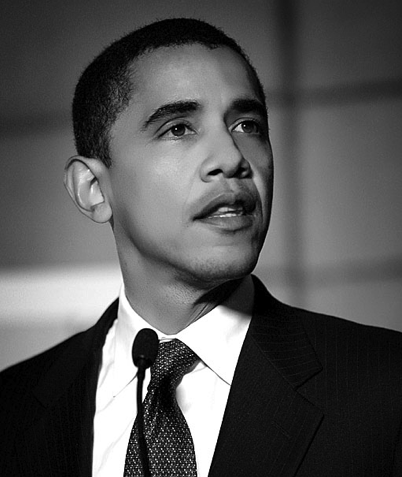Obama Announces Iraq Troops Will Be Withdrawn By End Of 2011

Obama Announces Iraq Troops Will Be Withdrawn By End Of 2011

WASHINGTON -- Fulfilling a long-held campaign promise, President Barack Obama announced Friday that he will pull all U.S. troops out of Iraq by the end of the year, as conditioned by the Status of Forces Agreement with the country.
"As a candidate for president, I pledged to bring the war in Iraq to a responsible end," Obama said. "So today I can report that, as promised, the rest of our troops in Iraq will come home by the end of the year."
"After nearly nine years, America's war in Iraq will be over," he said.
In confirming his plans for troop withdrawal by the end of 2011, the president fulfilled the most memorable pledge he made in securing the nomination of president from his party. There had been reports the administration had been plotting ways to renegotiate the Status of Forces Agreement with the Iraqi government so as to prolong America's presence in the country. Those rumors heightened concerns among Democrats who backed Obama in part because of his pledge to end the war in Iraq.
"This will allow us to say definitively that the Iraq war is over, and that the partnership between the US and Iraq will be a normal one between two sovereign nations," said a senior White House official.
There are currently 41,000 U.S. troops in Iraq, virtually all of whom will be pulled by December 31, 2011. The White House announced that 4,000 to 5,000 security contractors would remain in the country in various posts. At the height of U.S. involvement in 2006, there were 170,000 soldiers on the ground.
Obama said the end of U.S. involvement in Iraq reflects a larger transition away from "the tide of war." He referenced the fact that troops are beginning to return home from Afghanistan and said that trend will only continue as the U.S. refocuses on its needs at home.
"After a decade of war, the nation we need to build and the nation we will build is our own," he said.
The president spoke before the press corps at 12:45 p.m. to announce his decision. He held a video conference with Iraq Prime Minister Nouri al-Maliki about an hour before that, in which the topic of a troop drawdown was discussed.
"During their conversation, President Obama and P.M. Maliki strongly agreed that this is the best way forward for both countries," the White House official said.
More than 4,400 American military lives have been lost since the start of the war in March of 2003, and more than 100,000 Iraqi civilians have been killed, according to Iraq Body Count, which cross-checks news reports with hospital and other official data. As of March, the war had cost the U.S. $806 billion.
Under an agreement negotiated by the Bush administration in 2008, U.S. troops were due to end their mission in Iraq by the end of 2011. But for much of this year, Obama and his advisers have been trying to find a way to retain some troop presence in the country.
According to people familiar with the negotiations -- which were conducted for the Obama administration by some of the same individuals who led the Bush-era process -- the main sticking points in recent months were over the precise number of troops that would stay behind, and whether the Iraqi government would agree to provide them with legal immunity.
Experts on the mission in Iraq say that despite the public protestations on all sides, both parties were eager to come to an agreement over a continuing troop presence: the Iraqis because they hoped for help in providing stability, and the Americans because they wanted a futher bulwark against encroachment by Iran.
But the Iraq government also faced internal divisions over the proposition, especially among Shia groups and Iraqi nationalists.
In the spring, Muqtada al-Sadr, the volatile and popular leader of the now-dormant Mahdi Army, threatened to unleash his Shia militia if American troops remained into 2012, although he occasionally wavered on that pledge.
Over the summer, American negotiators were hoping to get Iraqi approval for about 10,000 troops to remain in the country, in order to continue training operations and to secure American diplomatic posts. But by early September, it was becoming increasingly clear that the Iraqis would not approve such a large mission.
A source familiar with the process told The Huffington Post at the time that the president was willing to leave as few as 3,000 troops in Iraq, but that some in his administration feared such a small number of soldiers would be ill-equipped to handle the missions they were assigned.
Obama Announces Iraq Troops Will Be Withdrawn By End Of 2011



